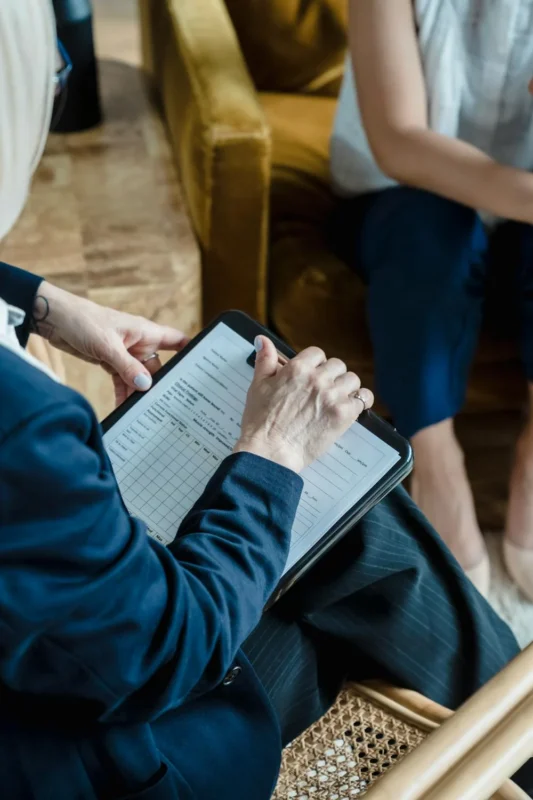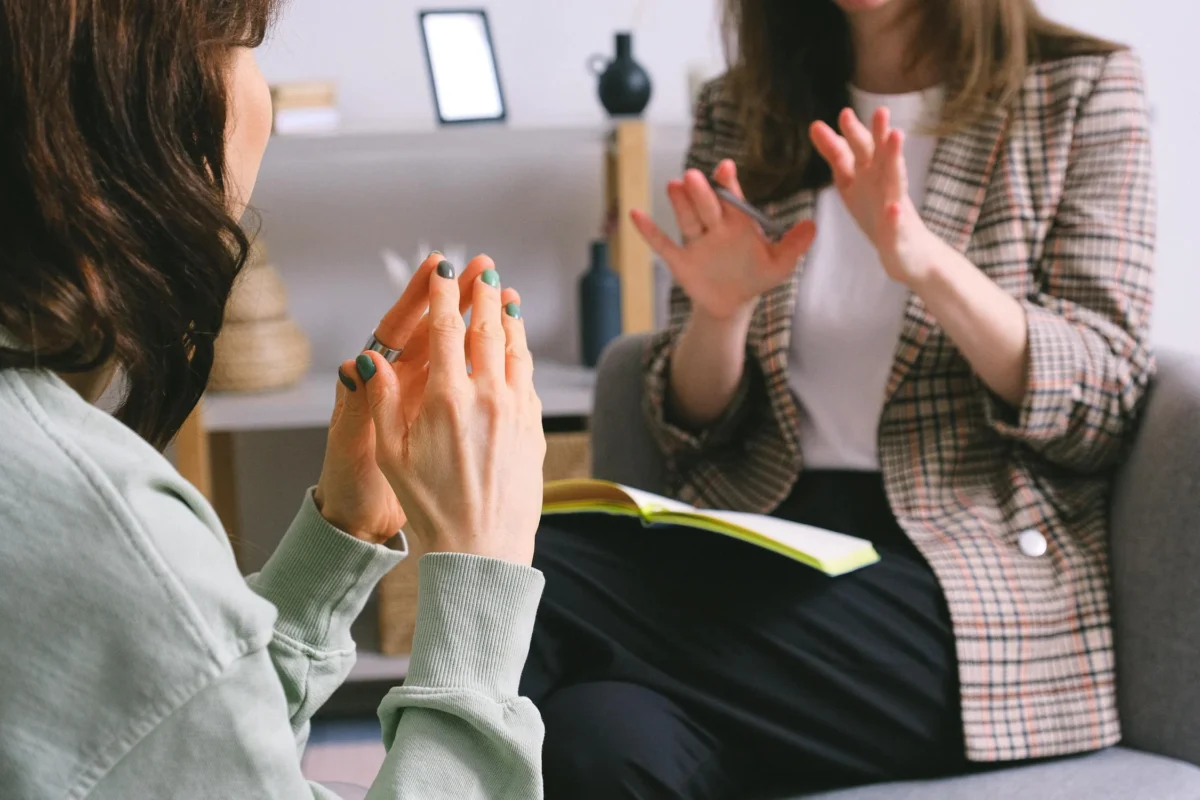Blog
What Issues Can Couples Sex Therapy Or Relationship improve?

Relationship or couples therapy is a helpful process that can assist people in improving many aspects of their relationship. Whether dealing with frequent arguments, communication challenges, trust issues, or simply feeling disconnected, therapy can offer tools to help couples navigate these situations healthily. Therapy doesn’t require that partners be on the brink of a breakup; instead, it can help to strengthen the bond and prevent issues from escalating.
Below are some key areas where relationship therapy can help, presented with examples, tips, and expert insights to make these ideas practical and easy to apply.
Communication Challenges and Misunderstandings

Communication problems are one of the most common issues in relationships. Couples often struggle to express their feelings clearly, leading to misunderstandings and unnecessary conflicts. Therapy helps by teaching partners to listen actively and communicate without assuming negative intent.
What is sex therapy?

Sex therapy is a type of counselling that helps people and couples overcome challenges related to sexual health, intimacy, and relationships. If you’re struggling with issues like low libido, performance anxiety, or relationship difficulties, sex therapy can be an important tool for improving your well-being.
Sex therapy isn’t just about addressing physical concerns. It also tackles emotional, mental, and relational factors that might affect intimacy. Whether you’re single, in a relationship, or going through a difficult time, a sex therapist can help you understand what’s happening and find ways to feel better.
What Does a Sex Therapist Do?
Sex therapists are trained professionals who help people with sexual problems that are linked to mental or emotional issues. They create a safe, supportive, and non-judgmental space to talk openly about sex and relationships.
It’s important to note that sex therapists do not treat medical conditions, like low testosterone. If there are physical issues affecting your sexual health, it’s best to see a doctor, such as a primary care provider, gynaecologist, or urologist, first.
Sex therapists use different treatments based on research to help improve your sex life. Most commonly, they use psychotherapy (talk therapy), where they talk with you to understand your thoughts, feelings, and behaviours. Some common types of therapy they use are:
- Cognitive Behavioural Therapy (CBT)
- Emotion-based therapy
- Mindfulness-based therapy
- Couples communication techniques
Confidentiality is very important in sex therapy. Therapists are required by their professional code of ethics to keep everything you share private. If they break this rule, they could lose their license to practice.
Why Should You See a Sex Therapist?
Sex is a complicated experience that involves emotional, mental, and physical aspects. It plays a key role in your overall well-being and relationship happiness. There are four stages of sexual response that therapists consider when helping you with sexual issues:
- Desire (wanting sex)
- Arousal (getting excited)
- Orgasm (climax)
- Resolution (feeling relaxed afterwards)
Problems can happen at any stage of this cycle. Understanding how you feel and respond at each stage can help improve your sexual experiences.
Sex therapists can help with emotional and mental issues related to sexual problems, such as:
- Low desire (not feeling interested in sex)
- Trouble getting excited or aroused
- Difficulty reaching orgasm
- Pain during sex (like vaginismus or other causes)
- Trouble getting or keeping an erection (erectile dysfunction)
- Premature or delayed ejaculation
They can also help with:
- Sex education and correcting misunderstandings
- Coping with sexual trauma
- Feelings of anxiety, fear, or shame about sex
- Cultural, religious, or societal views affecting your sex life
- Improving communication with your partner about sex and intimacy
- Mismatched sexual desire between partners
- Relationship problems caused by sexual issues
- Body image concerns and how they relate to sex
- Coping with sexually transmitted infections (STIs)
- Issues like hypersexual disorder or porn addiction
What Happens During a Sex Therapy Session?

In sex therapy, you’ll work with your therapist to identify and change thoughts and behaviors that are affecting your sex life. You can see the therapist alone or with your partner.
Your therapist may ask about:
- Your sexual and health history
- Your sex education
- Your personal beliefs about sex
- Any specific sexual concerns you have
Talking about sex can be awkward, but therapists are trained to make the conversation comfortable. They focus on building trust and a good relationship with you so the therapy can be helpful.
Sometimes, your therapist might give you “homework”—activities to try at home to help improve your sexual life. This could include things like role-playing or intimacy-building exercises with your partner.
It’s important to know that no physical contact or sexual activity happens in therapy. If you ever feel uncomfortable, you should talk to your therapist or stop seeing them.
Sex Therapist vs. Sex Counsellor: What’s the Difference?
Both sex therapists and sex counsellors are certified by the American Association of Sexuality Educators, Counsellors, and Therapists (AASECT) and have training in human sexuality.
The key difference is in how they approach your sexual concerns:
- Sex therapists use psychotherapy (talk therapy) to address both simple and complex issues.
- Sex counsellors focus more on short-term problems, offering education and practical advice or techniques to help you overcome those challenges.
Benefits of Sex Therapy
Here are some key benefits of engaging in sex therapy:
- Improves Communication
- Many people struggle with talking openly about sex. A therapist helps you feel comfortable discussing sensitive topics without judgment.
- Helps Overcome Sexual Dysfunction
- Sex therapy is helpful for those facing sexual dysfunctions, such as erectile dysfunction, premature ejaculation, or vaginismus. Therapy helps people better understand their bodies and how to enjoy intimacy.
- Addresses Psychological Barriers
- Negative emotions, past trauma, or relationship issues can create blocks to intimacy. Sex therapy addresses these issues to help you feel more confident and connected.
- Improves Emotional Intimacy
- Strengthening emotional connections is often key to improving physical intimacy. Through therapy, partners can learn to connect more deeply on an emotional level.
- Enhances Sexual Health
- People who experience discomfort, pain, or dissatisfaction during sex can benefit from therapy. Therapists help you work through these concerns and suggest effective treatments or coping strategies.
How Does Sex Therapy Work?

Sex therapy can take different forms depending on the issues being addressed. Generally, here’s how it works:
- Assessment
- The therapist begins by asking questions to understand your concerns. This might include discussing your sexual history, relationship dynamics, and any physical or emotional issues that may be affecting your intimacy.
- Setting Goals
- The therapist helps you set realistic goals for your sexual health and intimacy. These goals guide your sessions and help measure progress.
- Therapeutic Techniques
- Depending on your needs, therapy can include various techniques:
- Cognitive Behavioral Therapy (CBT): Helps change negative thoughts and behaviors that impact intimacy.
- Sensate Focus Exercises: Encourages physical touch and reconnecting with your partner without the pressure of performance.
- Education: The therapist might provide educational resources on topics like anatomy, arousal, or communication.
- Depending on your needs, therapy can include various techniques:
- Ongoing Support
- Sex therapy often involves several sessions, as progress may take time. The therapist may suggest exercises to practice between sessions and will continue to provide support as you work towards your goals.
Who Can Benefit from Sex Therapy?
Anyone can benefit from sex therapy, whether you’re facing physical challenges, emotional blocks, or relationship struggles. Some common situations where people turn to sex therapy include:
- Couples facing issues like mismatched sex drives or communication problems
- Individuals dealing with sexual performance issues or pain during sex
- People recovering from sexual trauma or abuse
- Individuals or couples looking to enhance their sexual connection
- Those experiencing difficulty with intimacy due to stress, anxiety, or depression
What to Expect from a Sex Therapy Session
Here’s what a typical session looks like:
- Confidentiality: Sex therapists are trained to maintain strict confidentiality, so you can feel comfortable sharing your concerns.
- Open Dialogue: The therapist will encourage open conversations about your sexual health, emotional state, and any challenges you’re facing.
- Comfortable Environment: You’ll work in a non-judgmental, respectful environment, designed to help you feel at ease.
- Therapist’s Approach: A therapist may provide a range of approaches depending on your needs, including relaxation techniques, communication skills, or exercises to enhance intimacy.
Common Misconceptions About Sex Therapy
It’s important to clear up some common myths about sex therapy:
- “Sex therapy is just about sex.”
While sex is a major part of therapy, sex therapy is also about emotional and relational health. It helps improve your overall well-being. - “Only people with sexual dysfunction need sex therapy.”
Many people seek sex therapy not because they have a sexual dysfunction but because they want to improve their relationships or deepen their emotional connections. - “It’s only for couples.”
While many people seek sex therapy as a couple, individuals can also benefit from therapy to work on personal issues or self-esteem related to sexuality.
Expert Tips for Better Sex and Intimacy
As an expert in the field, here are a few tips that can help improve your intimacy:
- Communicate Openly: Honest communication is key to healthy relationships and satisfying sex lives.
- Understand Your Body: Knowing what makes you feel good and what you enjoy can improve your sexual experiences.
- Focus on Emotional Intimacy: Sex is about more than just physical touch—emotionally connecting with your partner is equally important.
- Take Your Time: Don’t rush through intimate moments. Focus on the journey rather than just the destination.
Tips for Better Communication

- Use “I” statements: Instead of saying, “You always ignore me,” try, “I feel unheard when I don’t get a response.” This approach feels less accusatory and helps avoid defensiveness.
- Practice reflective listening: Repeat back what your partner says to confirm you understood correctly. For example, “So, you’re feeling frustrated because I didn’t ask about your day?”
- Avoid “always” and “never”: These words often exaggerate the issue and make the other person feel blamed.
Real Example: Common Communication Issues and How to Address Them

| Issue | How it Usually Looks | How to Improve |
|---|---|---|
| Not feeling heard | “You never listen!” | Use “I” statements and share feelings |
| Interrupting | Cutting off mid-sentence | Practice patience and wait for a pause |
| Defensiveness | “I only did that because you did…” | Focus on your own feelings and actions |
Trust and Transparency
Trust is crucial for any healthy relationship. When trust is broken, it can be challenging to rebuild, but therapy offers ways to work on this together. Couples therapy helps individuals openly discuss trust issues and find ways to rebuild faith in each other.
Steps to Build Trust
- Open communication about expectations: Discuss what each person expects from the relationship in terms of trust and boundaries.
- Honesty in small matters: Consistent honesty, even in minor details, helps build a foundation of trust.
- Forgiveness: Learning to forgive doesn’t mean forgetting; it means letting go of grudges and working together toward a better future.
Expert Insight on Trust-Building
According to Dr. Carol Morgan, a relationship therapist, “Small steps in rebuilding trust make a difference. Start by being honest and transparent, and avoid keeping secrets. The more you share openly, the more trust can grow.”
Conflict Resolution and Managing Arguments
Disagreements are natural, but unresolved conflicts can strain any relationship. Therapy guides couples in learning conflict resolution techniques to address issues constructively instead of letting them fester.
Conflict Resolution Techniques
- Time-outs when emotions run high: If a conversation turns heated, it’s often helpful to take a break, calm down, and then come back to it.
- Problem-solving approach: Discuss what changes can realistically be made rather than only pointing out problems.
- Compromise: Both partners should give a little in order to reach a solution that satisfies both parties.
Example: Avoiding Common Argument Traps
| Trap | Description | Solution |
|---|---|---|
| Escalating too quickly | Letting minor issues become major fights | Take a pause and stay calm |
| Blame-shifting | Shifting fault to the other partner | Focus on the issue, not on assigning blame |
| Bringing up the past | Using past issues in new arguments | Stick to the current topic only |
Building Emotional Intimacy
Emotional intimacy is about feeling close and connected to your partner. When intimacy fades, people may feel distant or unimportant. Therapy helps couples rebuild intimacy by encouraging open conversations, vulnerability, and empathy.
Tips for Enhancing Emotional Intimacy
- Weekly “check-in” conversations: Spend a few minutes every week sharing personal feelings and asking your partner about their emotions and well-being.
- Express appreciation regularly: Small gestures, like thanking your partner for cooking or listening, help reinforce closeness.
- Be vulnerable: Share personal thoughts, worries, and dreams to connect on a deeper level.
Real Example: Ways to Increase Emotional Intimacy
| Action | Benefit |
|---|---|
| Saying “thank you” daily | Makes each person feel valued |
| Asking about their day | Shows genuine interest in each other’s life |
| Sharing hopes and dreams | Builds long-term emotional connection |
Rebuilding Physical Intimacy

Physical intimacy often declines over time due to various factors, including stress, busy schedules, and life changes. Therapy can help couples identify and work through obstacles that might be affecting their physical connection.
Steps to Reignite Physical Intimacy
- Prioritize quality time: Schedule regular date nights or activities you both enjoy.
- Openly discuss needs: Share openly about what each person enjoys and needs physically without feeling judged.
- Try new activities together: Trying something new, even if it’s not related to intimacy, like cooking together or going on a hike, can reignite closeness.
Insight from Experts
Dr. Jessica Smith, a relationship coach, notes, “Physical intimacy often reflects the overall health of the relationship. When couples feel connected emotionally, physical closeness naturally follows.”
Financial Stress and Money Issues
Money is often a source of stress in relationships, leading to arguments, feelings of inequality, or misunderstandings. Therapy offers a neutral ground for discussing finances and creating a joint financial plan that respects both partners’ views and values.
Tips for Managing Financial Stress
- Create a budget together: Establish a shared budget that includes both personal and joint expenses.
- Discuss financial goals: Talk openly about savings goals, spending habits, and future plans.
- Avoid financial secrecy: Be transparent about individual debts or financial responsibilities.
Real Example: Financial Issues and Solutions
| Financial Issue | Common Problem | Solution |
|---|---|---|
| Different spending habits | One is a saver, one is a spender | Set a joint savings goal and allocate personal spending money |
| Secret debts | Partner is unaware of debts | Be open about financial history and plan to tackle debt together |
| Disagreements on big purchases | Conflict over how much to spend | Agree on a spending threshold that requires mutual consent |
Balancing Work-Life Stress
Modern work demands can take a toll on relationships. Long hours, stress from work, or job insecurities may lead to limited time and energy for the relationship. Therapy can assist couples in finding a healthier balance between work and their personal lives.
Steps to Balance Work and Relationship
- Set clear boundaries for work: Agree on “no-work” times or areas at home to keep work stress separate.
- Prioritize relaxation time together: Whether it’s a walk after dinner or watching a favorite show, find ways to unwind together.
- Respect each other’s work stress: Recognize and empathize with the demands of each other’s work life rather than competing over who’s more stressed.
Real Practical: Work-Life Balance Tips
| Challenge | Suggested Action |
|---|---|
| Long working hours | Set a time for a daily activity together |
| Constant work calls | Designate “no-work” zones at home |
| Stress spilling over | Practice empathy and support each other’s struggles |
Parenting Challenges
For couples with children, parenting can sometimes create additional stress. Differing parenting styles, lack of time for each other, and financial strain due to children’s needs can all impact a relationship. Therapy can offer guidance on maintaining a healthy relationship while navigating the demands of parenting.
Tips for Managing Parenting Challenges
- Establish shared parenting goals: Discuss and agree on basic parenting values like discipline, screen time, and education.
- Make time for the relationship: Even with children, prioritize couple time to maintain the romantic aspect of the relationship.
- Divide responsibilities: Share parenting tasks to avoid burnout and ensure both partners feel involved.
More Real Example: Common Parenting Challenges and Solutions
| Challenge | Solution |
|---|---|
| Different parenting styles | Communicate and agree on fundamental values |
| Limited time for each other | Plan regular date nights or alone time |
| Balancing work and kids | Divide tasks based on each person’s schedule |
What should I expect during relationship and couples therapy?
Relationship and couples therapy provides a supportive space where both partners can work on improving their connection, understanding each other’s perspectives, and tackling any issues that may be causing stress in the relationship. Here’s a breakdown of what you can typically expect during this process:
1. Initial Assessment and Goal Setting
In the beginning, the therapist will likely conduct an initial assessment. This involves understanding the background of the relationship, identifying the main issues, and setting specific goals for therapy.
- What to Expect: Both partners will be asked to share their view of the relationship, including strengths, concerns, and what they hope to achieve through therapy. This can help clarify each person’s perspective and set a baseline for progress.
- Purpose: This step allows the therapist to understand both individual and shared needs and tailor the approach accordingly.
Real Example Goals in Therapy
| Goal | Description |
|---|---|
| Improving Communication | Working on clearer, more constructive ways to express needs and feelings |
| Rebuilding Trust | Establishing a plan to repair trust after a breach, like infidelity |
| Managing Conflict | Learning healthier ways to navigate disagreements |
2. Learning Communication Techniques
Many couples face issues with communication. Therapy will likely introduce you to tools that can help you understand and connect with each other more effectively.
- What to Expect: The therapist might teach techniques like active listening, using “I” statements, or other specific skills to improve communication. This could involve exercises where one person speaks while the other listens without interrupting.
- Purpose: Communication skills help reduce misunderstandings and make each person feel heard and validated.
Communication Techniques in Therapy
| Technique | Description |
|---|---|
| Active Listening | Focused attention on your partner’s words without forming a response immediately |
| Reflective Listening | Repeating or summarizing what your partner says to ensure understanding |
| Using “I” Statements | Expressing personal feelings or needs instead of blaming (“I feel…” instead of “You never…”) |
3. Identifying and Changing Patterns
Therapy helps couples identify unhealthy relationship patterns that lead to recurring conflicts or disconnects.
- What to Expect: You may discuss past arguments or interactions to find recurring themes, like one partner withdrawing during conflict or the other becoming overly critical. The therapist helps highlight these patterns and encourages ways to break out of them.
- Purpose: Recognizing these patterns can reduce repetitive conflicts and help each person respond in more constructive ways.
Common Patterns Explored in Therapy
| Pattern | Description |
|---|---|
| Pursuer-Distancer | One partner seeks closeness while the other pulls away, often leading to frustration for both |
| Criticize-Defend | One partner criticizes, and the other becomes defensive, blocking any productive conversation |
| Demand-Withdraw | One partner makes demands or seeks change, and the other withdraws, often leading to feelings of neglect |
4. Developing Empathy and Understanding Relationship Therapy

Understanding each other’s perspectives and emotional experiences is a core component of relationship therapy.
- What to Expect: Exercises may involve sharing past experiences or feelings that contribute to each partner’s current perspectives. You might be asked to express how certain actions or behaviors make you feel and how past experiences shape your reactions.
- Purpose: Developing empathy helps each partner feel understood and connected on a deeper level, fostering emotional intimacy.
Empathy-Building Exercises
| Exercise | Description |
|---|---|
| Sharing Emotional Experiences | Talking about past events or experiences to foster understanding |
| Perspective-Taking | Each partner imagines the situation from the other’s point of view |
| Validation Practice | Expressing acknowledgment and respect for each other’s feelings, even in disagreements |
5. Setting Boundaries and Personal Space
Therapy can help couples define healthy boundaries and respect each other’s need for individual space, which is essential for a balanced relationship.
- What to Expect: Discussions may focus on identifying personal needs for time alone, balancing work and family responsibilities, or setting boundaries on issues like privacy or finances. This might include exercises to articulate what each person feels comfortable with and how to communicate boundaries respectfully.
- Purpose: Setting boundaries ensures that each person feels respected and maintains a healthy level of individuality within the relationship.
Examples of Boundaries in Relationships
| Boundary Type | Example |
|---|---|
| Time Boundaries | Designating specific times for personal or quiet time |
| Emotional Boundaries | Respecting each other’s need to process emotions without pushing for immediate resolution |
| Digital Boundaries | Agreeing on privacy standards with phones, social media, etc. |
6. Conflict Resolution Skills
Therapists guide couples in managing conflict by using techniques to reduce emotional escalation and communicate more constructively.
- What to Expect: Couples may role-play common conflicts, discuss “hot-button” topics, or learn tools to keep discussions respectful and calm, such as taking breaks during arguments or using neutral language.
- Purpose: The goal is to prevent conflicts from becoming damaging and to approach disagreements in a way that respects both people’s views.
Conflict Resolution Tools
| Tool | Description |
|---|---|
| Time-Outs | Taking a break when emotions are high to prevent escalation |
| Ground Rules for Arguments | Agreeing on no name-calling, not interrupting, etc. |
| Focusing on Solutions | Shifting the focus from blame to finding a mutually acceptable solution |
7. Building Emotional and Physical Intimacy
Therapy sessions may include discussions and exercises that help couples reconnect emotionally and physically, especially if intimacy has declined.
- What to Expect: Therapists may encourage couples to express appreciation, show affection, or prioritize time together. If physical intimacy has become an issue, the therapist may introduce gentle steps to rebuild closeness in ways that feel comfortable for both partners.
- Purpose: Rebuilding intimacy fosters a deeper sense of connection and can strengthen the bond between partners.
Steps to Rebuild Intimacy
| Step | Description |
|---|---|
| Express Daily Appreciation | Noticing and acknowledging small gestures and actions |
| Non-Physical Affection | Practicing small touches, hugs, or other non-sexual affectionate acts |
| Planned Quality Time | Scheduling regular date nights or activities that each person enjoys |
8. Regular Progress Evaluation
As therapy progresses, the therapist will periodically assess how the relationship is improving and discuss any areas that still need work.
- What to Expect: The therapist might revisit initial goals and track improvements in communication, conflict resolution, or emotional connection. Feedback is encouraged, and new goals may be set based on evolving needs.
- Purpose: This evaluation helps keep the therapy focused and gives couples a sense of achievement, reinforcing positive changes.
Example of Progress Markers
| Marker | Description |
|---|---|
| Improved Communication | Fewer misunderstandings or misinterpretations in daily conversations |
| Reduced Conflicts | Arguments are less frequent or less intense, with faster resolutions |
| Increased Affection | Couples report feeling closer or more affectionate toward each other |
9. Practical Home Exercises
Therapists often assign exercises to practice outside of sessions, which can be vital for reinforcing new skills and habits in daily life.
- What to Expect: Exercises may include journaling, practicing certain types of conversations, or scheduling quality time. These exercises help both partners apply what they’ve learned in therapy to real-life situations.
- Purpose: Homework exercises keep the momentum going between sessions, fostering long-term change.
Common Home Exercises
| Exercise | Description |
|---|---|
| Journaling Emotions | Writing down emotions and thoughts to process feelings independently |
| Date Nights | Regularly planned time to enjoy each other’s company without discussing serious issues |
| Daily Gratitude | Sharing one thing each day that you appreciate about your partner |
Final Thoughts
Sex therapy is a valuable tool for improving sexual health, enhancing relationships, and fostering better communication. Whether you’re dealing with specific issues or just want to improve your overall intimacy, sex therapy offers the support you need. With the right therapist, you can overcome challenges, rediscover your connection with your partner, and lead a more satisfying and fulfilling sexual life.
FAQ
Q1: What is sex therapy?
Answer: Sex therapy is a type of counseling that helps individuals or couples address sexual problems, often related to emotional, mental, or relational issues. It involves open conversations with a trained therapist in a supportive, non-judgmental environment.
Q2: How can a sex therapist help me?
Answer: A sex therapist can help with a wide range of sexual issues, such as low desire, trouble achieving orgasm, pain during sex, and communication problems between partners. They use therapy techniques like talk therapy to explore and resolve these issues.
Q3: Will a sex therapist touch me during a session?
Answer: No, a sex therapist will never engage in physical contact or sexual activity. All sessions are focused on talking through issues, and any exercises or homework will be conducted in private, away from the therapist’s office.
Q4: Do I need to see a doctor before going to sex therapy?
Answer: If your sexual problems are caused by medical issues, such as hormonal imbalances or physical dysfunctions, it’s best to see a doctor first. A sex therapist helps with emotional or mental aspects, but physical conditions may need medical attention.
Q5: What types of issues can sex therapy address?
Answer: Sex therapy can address problems like lack of desire, difficulty achieving arousal or orgasm, erectile dysfunction, pain during sex, anxiety related to intimacy, trauma recovery, and communication issues between partners.
Q6: How long does sex therapy take?
Answer: The length of sex therapy varies depending on the individual or couple’s concerns. It may take anywhere from a few sessions to several months. Your therapist will work with you to create a plan and track progress.
Q7: Can sex therapy improve my relationship?
Answer: Yes, sex therapy can improve communication, intimacy, and emotional connection in relationships. It helps couples address sexual issues, such as mismatched desires, and fosters a healthier, more open relationship.
Q8: Is sex therapy only for couples?
Answer: No, sex therapy is beneficial for both individuals and couples. Individuals can work on personal issues, while couples can address shared concerns and improve their sexual connection together.
Q9: How do I find a qualified sex therapist?
Answer: To find a qualified sex therapist, check certifications from organizations like the American Association of Sexuality Educators, Counselors, and Therapists (AASECT). You can also ask your healthcare provider for recommendations.
Q10: Will sex therapy fix my sexual problems immediately?
Answer: Sex therapy takes time and effort. It involves exploring deeper emotional, mental, and relational aspects of sexuality. Results vary, and progress often happens gradually with consistent work in and outside therapy sessions.
Q11: What types of therapy do sex therapists use?
Answer: Sex therapists may use various therapeutic approaches, such as Cognitive Behavioral Therapy (CBT), mindfulness-based therapy, emotion-focused therapy, and communication techniques to address different issues related to sex.
Q12: Is sex therapy confidential?
Answer: Yes, sex therapy is confidential. Therapists are bound by ethical guidelines to protect your privacy. What you share in sessions stays between you and the therapist unless there are concerns about your safety.
Q13: Can sex therapy help with sexual trauma?
Answer: Yes, sex therapy can help individuals heal from sexual trauma. Therapists provide a safe space to work through emotional wounds, rebuild trust, and address anxiety, shame, or fear related to intimacy.
Q14: Do I need to talk about sex in therapy?
Answer: Yes, talking about sex is essential in sex therapy. However, therapists understand that it can be difficult to discuss, and they create a comfortable, non-judgmental environment to help you feel at ease.
Q15: What if I feel uncomfortable during a session?
Answer: If you feel uncomfortable during a session, it’s important to communicate with your therapist. They are there to make you feel safe and respected. If necessary, you can stop the therapy or switch therapists.
